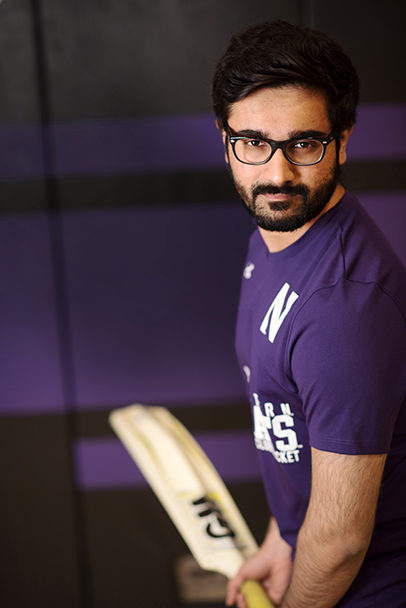Q&A: Ali Qureshi '19
The Economics and Political Science major and founder of the Northwestern Club Cricket team applies the lessons of the sport on and off the field

Ali Qureshi just wanted to play some pick-up cricket at Patten Gymnasium.
Instead, he ended up transforming a ragtag group of cricketers into the popular Northwestern Club Cricket team, whose 35 members compete regionally throughout the fall and spring.
In building the team, which includes members from India, Pakistan and across the United States, Qureshi didn’t merely launch Northwestern’s 35th club sport. He also made it comfortable for the diverse team to connect across cultural differences.
In recognition of his efforts, the Office of Student Engagement honored Qureshi with a 2017 Wildcat Impact Award.
Why cricket?
I grew up in Pakistan, where cricket is like a religion. You know how in America, you have the Super Bowl and the World Series? With all due respect, where I grew up, cricket is much bigger. It’s more than a sport for us. It’s a way of life.
How did the Northwestern cricket team come to be?
We started playing pick-up games in 2015 with about 20 players. Every week, more people started showing up.
And it’s not just students from Pakistan.
Sport is a universal language. When people are in a stadium cheering for a team, everyone is in sync. When students from Boston, New York
What makes this club unique?
What have you learned as a result of this experience?
The most important thing to me is that every single person who shows up to practice feels important and goes home feeling fulfilled. So after every practice, I try to evaluate myself and get feedback on how I can better provide that sense of respect and belonging. The importance of connecting with people individually and as a team — that’s what cricket has taught me.